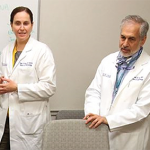
Image Credit: dizain/shutterstock.com
Seven students pursuing rheumatology-related careers will head to San Francisco in November on a Student and Resident ACR/ARHP Annual Meeting Scholarship—awards that are open to students and residents from states that are underserved by rheumatology professionals.
The Rheumatology Research Foundation has awarded the students $750–1,500 toward travel expenses and registration for the ACR/ARHP Annual Meeting, along with a year of ACR or ARHP membership.
Hazel Breland, PhD, assistant professor of occupational therapy at the Medical University of South Carolina (MUSC), supported the applications of five of the winners. She said she thought it was important to make students aware of the chance to learn more about the rheumatology field.
“In an ongoing effort to introduce students to the field of rheumatology, as well as increase the number of health professions students interested in rheumatology practice and research, this July, I shared several rheumatology funding opportunities for health professional students with several divisions,” Dr. Breland says.
She describes a high level of enthusiasm for the students she supported, using phrases like “rhapsodic for learning” and “tremendous work ethic” to describe them. Several of the winners have personal experiences with rheumatic conditions.
The Winners
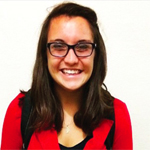
Ms. Bigg
Sherridan Bigg, occupational therapy student at MUSC—Ms. Bigg says her interest in rheumatology was sparked in part by her work with a nonprofit camp for children with chronic diseases, where some had rheumatic conditions. She says she is interested in learning about studies on performance of daily activities with Sjögren’s syndrome and pain and function in total knee replacement.
“As an aspiring occupational therapist, [I recognize] an incredible variability in the cohorts of the clients that we will be seeing,” she says. “Attending the conference will give me the ability to learn more about how I can best provide care for someone with a [rheumatic] condition.”
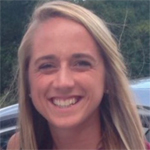
Ms. Bockelman
Kierstin Bockelman, occupational therapy student at MUSC—Ms. Bockelman says she feels that her first year as an occupational therapy student is a crucial molding point for her career, so she is seeking out new knowledge and experiences.
She says she is interested in the smaller Meet the Professor sessions because of the chance for interaction, and is looking forward to a lecture on improving long-term outcomes. She hopes it will give her insight into how to tie therapeutic treatment into a long-term approach.
“Patients with rheumatic conditions would be great candidates for occupational therapy,” she says. “From the conference, I am hoping to get a better understanding of how occupational therapy can help, as well as see inter-professional training at work. I am also planning to get resources and skills to help in my development as a well-rounded occupational therapist.”
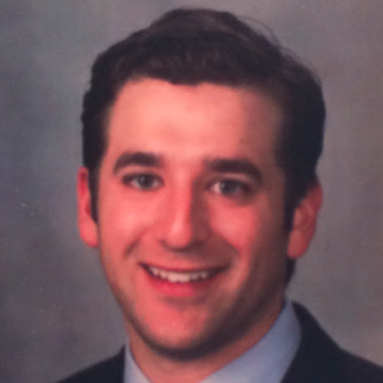
Mr. Fritzlen
John Fritzlen, medical student at the University of Kansas School of Medicine—Mr. Fritzlen spent two years between getting his undergraduate degree and starting medical school as a medical assistant in the UK Hospital cardiology office. There, he saw patients with heart problems due to rheumatic conditions, such as sarcoidosis and Churg-Strauss syndrome. He says he found those cases the most interesting and read more about them in his spare time. That interest led to a summer research project on giant cell arteritis at the Mayo Clinic, and he will be giving an oral presentation on that research at the meeting.
“It will be an honor to do so and a valuable experience so soon in my medical career,” Mr. Fritzlen says. “It is one of my goals to be involved in academic medicine, and I cannot think of a better way to start. I look forward to learning more about the different forms of vasculitis, meeting doctors from around the world and enjoying some of San Francisco, as well.”
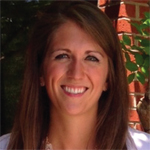
Ms. Gaffney
Erin Gaffney, physical therapy student at MUSC—Ms. Gaffney works at the CARES clinic, a student-run free clinic for the uninsured and underinsured, and participated in a medical mission trip to Nicaragua, where she provided physical therapy services to the needy in rural parts of the country. She worked on a lupus research study as a high-school summer job, in which she learned a lot and enjoyed talking to lupus patients. She says she is interested in sessions on pain management, balance and proprioception and a few specific disorders, including systemic lupus erythematosus.
“By attending the ACR/ARHP Annual Meeting, I am hoping to gain a better understanding of [rheumatic] diseases,” Ms. Gaffney says. “I am eager to learn how different health professions work together to treat these diseases, and the role that physical therapy can play in helping patients manage their conditions. I hope to return from the meeting as an advocate for patients with [rheumatic] diseases, and would love to focus my physical therapy career to helping these individuals lead a higher quality of life.”
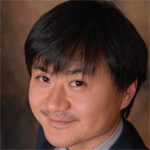
Dr. Lu
Rufei Lu, MD/PhD student at the University of Oklahoma Health Sciences Center—Dr. Lu, who already has a PhD in pathology, has personal experience with rheumatic disease. His wife has severe SLE, which emerged at the beginning of their relationship. He quickly realized how devastating rheumatic diseases can be.
“It’s at that moment I realized how devastating rheumatic diseases can be and how much we still don’t know and how limited our current treatment options are for patients suffering from severe rheumatic diseases,” he says. “I have seen many patients with rheumatic diseases while I shadowed my mentor during my PhD years, which enabled me to listen to the stories of patients with different types of rheumatic diseases. I have always been interested in immunology and feel like there is still so much to explore and discover. I am hoping to learn the cutting-edge techniques to study immunology, as well as novel findings that could get us a step closer to the cure. I am particularly interested in the mechanism of diseases and in understanding disease etiology and pathophysiology, especially during the pre-disease period.”
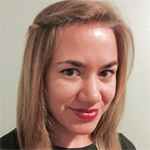
Ms. Michalak
Heather Michalak, occupational therapy student at MUSC—Ms. Michalak participates in a faculty-led research group, is active in student government, volunteers at the CARES clinic and is a volunteer Health Outreach Peer Educator. Both of her parents have osteoarthritis.
At the conference, she says she’ll be most interested in public health, epidemiology, health education and rehabilitation.
“I am excited to attend the conference because I like learning about current research at my own pace,” she says. “I like that I can learn about rheumatic diseases without being in a classroom, and I can choose to focus on the topics that interest me most. I am aware that when I have patients of my own, many will suffer from a rheumatic condition as either a primary or secondary diagnosis. Hence, I want to be more knowledgeable of what that means for their therapeutic treatment in order to couple that properly with their medical treatment.”
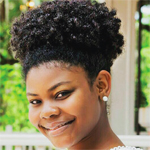
Ms. Pollock
Ebony Pollock, occupational therapy student at MUSC—Ms. Pollock has expressed an interest in volunteering at a local shelter in Charleston and in volunteering at the CARES clinic. Her father has rheumatoid arthritis, and Ms. Pollock herself has had RA-like symptoms, although she has not been diagnosed with RA.
“I would like to attend the conference because I have personal experience with rheumatic disease and I have watched my father battle with rheumatoid arthritis my entire life,” she says. “I have seen some of the devastating effects of rheumatic diseases, so that is what piqued my interest. I believe that becoming knowledgeable about this part of the health field will make me a more well-rounded occupational therapist. By learning more about rheumatic diseases, I believe that I will be able to help my future clients more effectively. I am most interested in learning about rheumatoid arthritis and lupus.”
Thomas R. Collins is a medical writer based in Florida.
Note: Issue went to press prior to the ACR/ARHP Annual Meeting.

